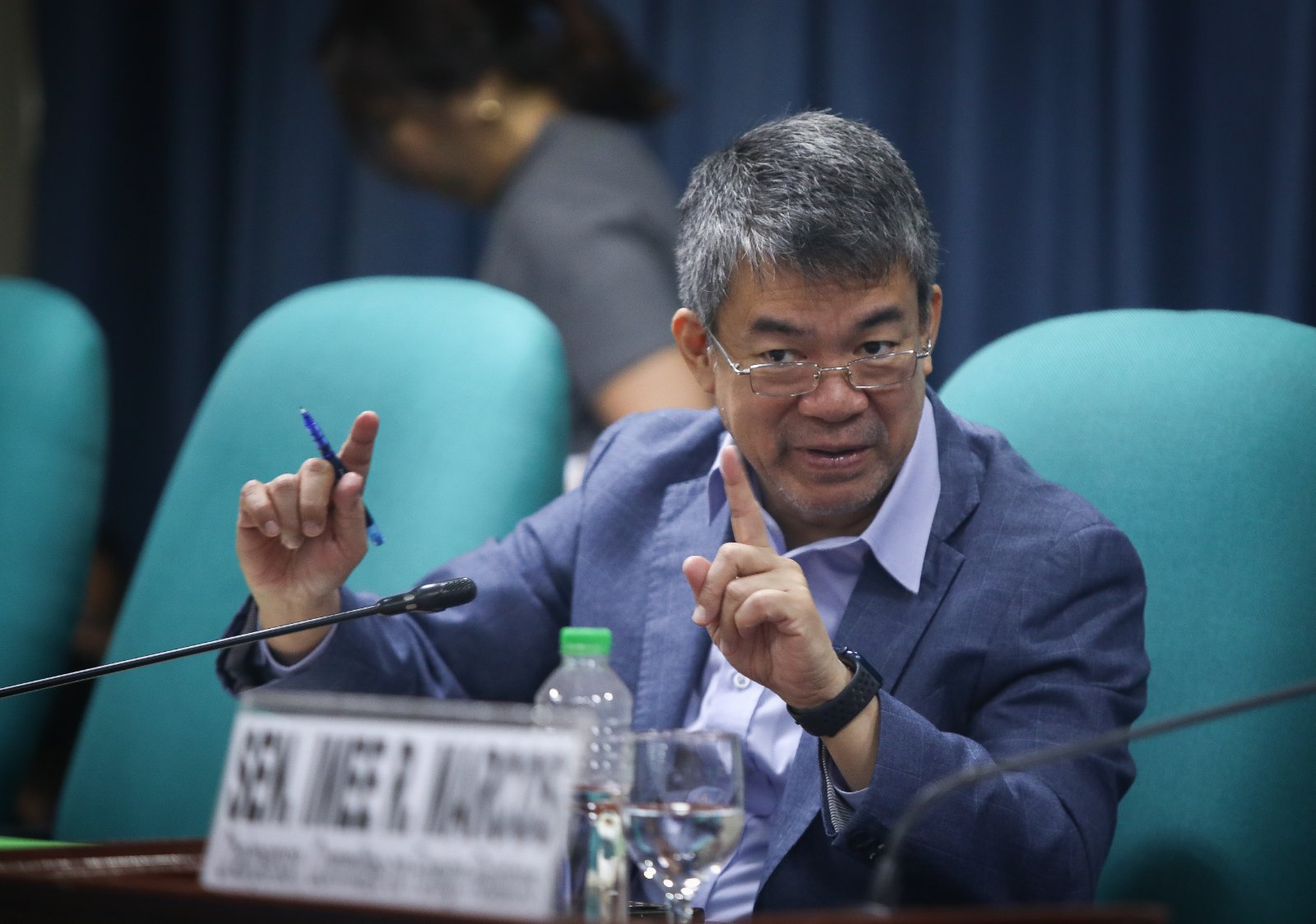Pimentel sees ‘invisible’ aid program in DSWD budget

Senate Minority Leader Aquilino “Koko” Pimentel III. —Senate Public Relations and Information Bureau
MANILA, Philippines — Senate Minority Leader Aquilino “Koko” Pimentel III on Monday questioned the Department of Social Welfare and Development (DSWD) over its financial assistance program for low-income and minimum-wage earners.
“You have over P20 billion, I think, for Ayuda sa Kapos ang Kita Program (Akap). My question is how do you access that? Is that purely an ‘ayuda’ program or just an assistance program which requires some return from the beneficiary? Nobody seems to understand the program among us here in the Senate,” he asked during the chamber’s deliberation on the proposed P229.8-billion budget for the DSWD and its attached agencies.
He noted that there was no request last year for funding of Akap, which provides a one-time P5,000 aid to beneficiary families receiving a monthly salary of P23,000 or less. But the program still found its way to this year’s national budget.
READ: ‘Make DSWD’s Akap aid program permanent’
Akap has a budget of P26.7 billion in 2024, although the DSWD did not request that allocation for the 2024 National Expenditure Program.
Article continues after this advertisement“How [did] a program which did not go through the other house of Congress [become] a national program by law? A law is supposed to be passed by two houses [of Congress],” Pimentel said.
Article continues after this advertisement“As far as senators are concerned, it’s like a secret, invisible, off-limits program,” he added.
“We’re only saying this now because it never reached the plenary. Nobody asked what this program is all about,” he said further.
Signature campaign
This was not the first time the DSWD program was questioned. During their probe into last year’s signature campaign for a people’s initiative to amend the 1987 Constitution, the senators also questioned the Akap fund allocation in the department’s 2024 budget.
Sen. Imee Marcos had claimed that Akap was one of the aid programs used to entice Filipinos to join the signature drive to amend the Constitution.
During Monday’s hearing, Marcos, who presided over the budget deliberations, said the DSWD did not request the program in the first place.
“We’ve been accused in the Senate of actually having participated in Akap simply because we lent our electronic signatures to the final bicam[eral] report, which became the GAA (General Appropriations Act) 2024. But in truth and in fact, we were never made aware of this program,” she said.
No ‘conditions’
Social Welfare Secretary Rex Gatchalian, who was at the hearing, explained that Akap, just like Assistance to Individuals in Crisis Situation (AICS), “is a social welfare program; it does not elicit any conditions, it does not impose any conditions and it does not aim to change behaviors. It’s really on the social welfare side.”
AICS is another DSWD aid program for individuals or families who have experienced such crises as illness, death, or calamities.
“We are aware that we also need to take care of those who are nearly poor, as we discussed earlier, so we looked into the situation of those who are barely making ends meet. They are earning, but their income is insufficient, especially during times of inflation,” Gatchalian said.
“So we welcomed it in the line item in the GAA when we got the 2024 GAA. As a matter of principle, we implemented it, and we created guidelines for it to make sure that it suits the purpose of its mandate,” he added.
He said the department continued to lobby for Akap’s inclusion in the budget because it is helping people, adding that his agency had published guidelines so that qualified beneficiaries would know how to avail themselves of that fund.
“We defer to the wisdom of the Congress and the Senate what discussions will be undertaken in the next plenary,” Gatchalian said.